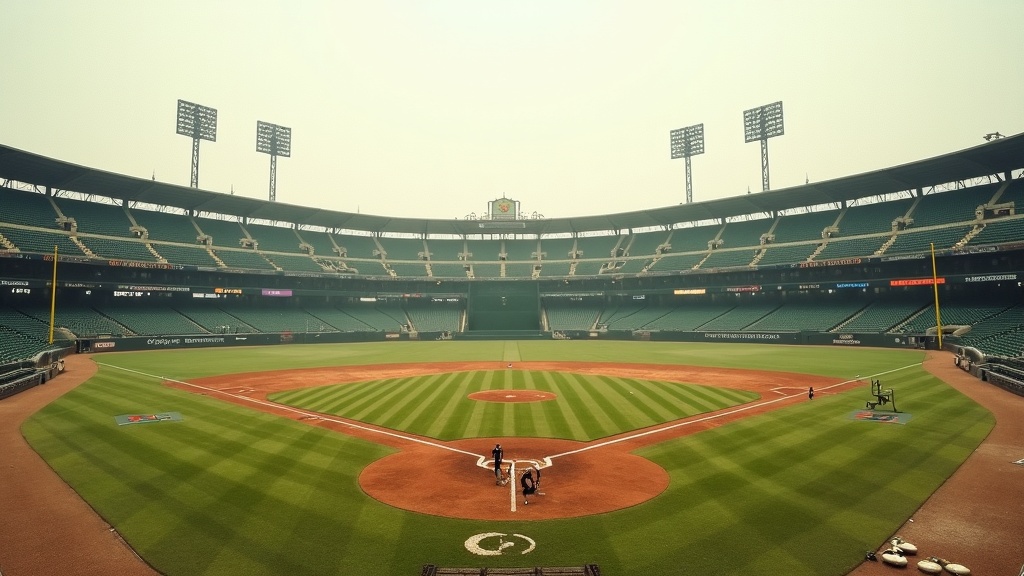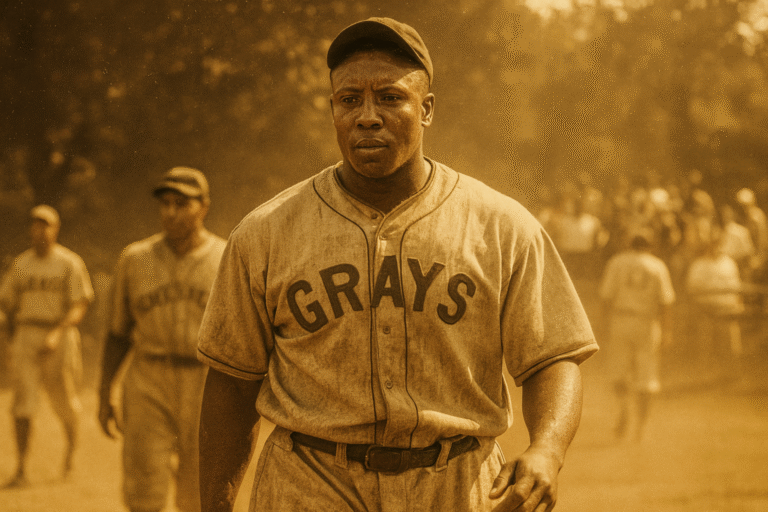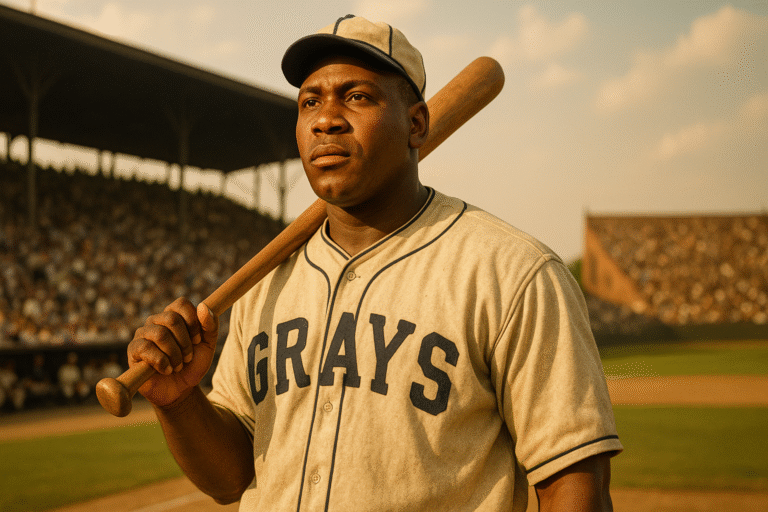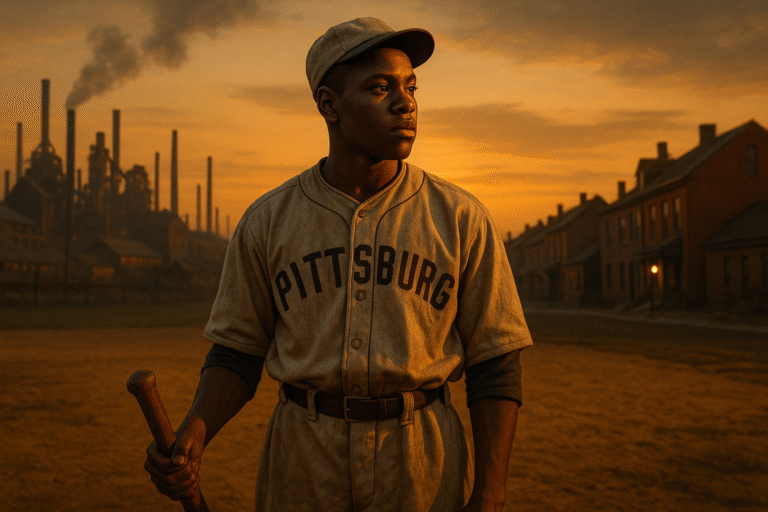Josh Gibson’s personal life reveals the man behind the legend.
Beyond home runs and headlines, Josh Gibson’s story is rooted in love, loss, and the strength of family. His personal life shaped the legacy that still inspires fans and communities today.
Behind the legend stood a father, a son, and a neighbor who never stopped caring.
Josh Gibson’s Personal Life
Josh Gibson’s name pops up pretty quickly in any discussion about baseball’s greatest sluggers, but there’s a lot more to his story than just home runs and record books. His adventure through life wound its way through joy, heartbreak, and an enduring legacy that extends beyond the diamond.
I find stories like his just stick with you. Maybe it’s the way family ties anchor everything else, or how legend and memory blur together as the years go by.

Early Life and Family Background
Josh Gibson grew up in Buena Vista, Georgia, but his family moved to Pittsburgh’s North Side when he was just a boy. You get the sense that those years really shaped him. Pittsburgh at the time was a hub for Black Americans heading north for work and opportunity, and the city’s communities were full of hardworking families like the Gibsons, doing whatever it took to get by.
Gibson’s father, Mark, worked on the railroad. Long, grueling hours, nothing flashy about it. I always picture those days as tough but close-knit; folks leaned on each other, especially in neighborhoods that didn’t always get the first pick of anything.
Gibson showed an early knack for sports. Some stories have neighbors mentioning how he’d hit anything with a stick, a bottle cap, or even a rock. That kind of energy, I think, is so typical of kids in tight quarters who invent games out of whatever’s lying around. His family encouraged it, seeing how talented he was. Later, Gibson married Helen Mason.
Their marriage was, by most accounts, very loving, but it was marked by real tragedy, too. Helen’s death in childbirth in 1929 left Gibson devastated. He was still just a teenager and suddenly, a single father to twins, Josh Jr. and Helen. There’s a lot of silence and pain stitched into those years; the way personal loss echoes after fans have gone home.
Those early days in Pittsburgh would also provide Gibson with lasting friendships and connections, some of which extended to the baseball fields where he first caught the eye of adult league coaches. It’s said that these roots grounded him, no matter how high he later soared in the sport.
Private Life Away from the Field
It’s easy to imagine Gibson as this larger-than-life slugger, but off the field, things weren’t so simple. After Helen’s death, Gibson did his best juggling baseball and family. His relatives, especially his mother Nancy, stepped in to help care for the twins.
For a while, he tried to keep his kids out of the spotlight, and I guess who can blame him? Playing Negro League baseball in the 1930s and ’40s meant long road trips, segregated accommodations, and months away from home. Raising kids under those circumstances was never easy, especially when you were the star attraction.
Friends and teammates described Gibson as private, sometimes even reserved. He was known for a quick laugh, but he’d talk about his family with a kind of quiet pride. Sometimes, people assume that talent like his always brings happiness, but there were times Gibson struggled with the grind, and possibly the weight of expectations and loss.
A few teammates remember late nights when he’d confide his worries about his children or bring up memories of his wife. Maybe this isn’t so unusual—star athletes still have to steer through heartbreak and long absences just like everyone else, and, for Gibson, it often showed up in flashes of vulnerability that don’t always make it into the history books.
During the offseasons, Gibson would sometimes work odd jobs or appear at local events, again reminding people that, despite his reputation, family responsibilities were always close to his heart. Friends outside the game mentioned how Gibson leaned into his role as a father during these quieter months, finding joy in moments at home.
Community and Personal Connections
Gibson was more than just a ballplayer to Pittsburgh’s Black community. Stories from the Hill District, the beating heart of African American culture in Pittsburgh back then, describe Gibson as a neighbor first. He’d often be seen at community events, chatting at barbershops, or just hanging out with local kids.
There are oldtimers who talk about watching him hit eye-catching home runs, then seeing him the next day picking up groceries at the corner store. Some say he gave informal batting tips to local youngsters, but I haven’t found much detail about that. I just like imagining those moments.
It’s pretty interesting, too, that despite being a constant headline in the sports pages, he kept his personal circle tight. Family gatherings and church events were more common for him than city nightlife. But every now and then, he’d celebrate a big win with friends and teammates; small-scale parties, lots of laughter, and enough food to feed everyone twice over.
Those quieter social moments are usually left out of the record, but they add a deeply human layer to Gibson’s story. Gibson’s ties to church and community gave him comfort and continuity, reminding those who knew him that generosity and humility were as constant as his legendary bat.
Challenges and Tragedies
Pain threaded through much of Gibson’s life, both in and out of uniform. His wife’s passing left an enormous gap, and he never remarried. Balancing the demands of his career and the needs of his twins was always tricky, and though he tried to shield them, media attention sometimes crept in.
The reality for Negro League players was harsh. Racism shaped where they stayed, what they ate, and how they traveled. Pay was inconsistent, schedules punishing, and healthcare practically nonexistent. Over the years, Gibson’s health began to decline.
He struggled with headaches and what would now likely be recognized as a brain tumor. By the early 1940s, friends noticed changes, a little more fatigue, a bit less of that booming laugh.
Those years took a toll. People loved to talk about his towering home runs, but teammates like Satchel Paige remembered the way Gibson would sometimes sit in the corner, head in his hands, lost in thought. It’s normal to want heroes always to be strong, but Gibson was human. He was reportedly just 35 when he died in 1947.
The weeks after, Pittsburgh’s Black community went into mourning; in some ways, it felt like the whole neighborhood had lost a relative. His twins, still young adults at the time, carried that weight too, surrounded by both fame and a father-sized hole in their lives.
Despite these personal setbacks, Gibson’s perseverance on the field remained outstanding, even when facing pain both physically and emotionally. Friends and family later said that his resilience in the face of so much difficulty left a lasting lesson for future generations.
The Legacy Gibson Left Behind
Even as the years pass, Josh Gibson’s story draws baseball fans, historians, and families searching for inspiration. He’s often mentioned as one of the greatest hitters never to play in Major League Baseball. Statistically, some claim he hit nearly 800 home runs, a number that’s impossible to verify thoroughly because Negro League recordkeeping was patchy at best. Still, former players, writers, and fans agree he was pure power and pure talent, and probably a lot more complicated than box scores can show.
His children and grandchildren, especially Josh Gibson Jr., worked for decades to keep his memory alive. The Josh Gibson Foundation runs youth baseball programs, scholarship drives, and history projects, especially around Pittsburgh.
They use the foundation not only to teach kids about baseball but also to talk openly about the history of segregation and the power of community. I think the honest approach, about facing pain as much as celebrating triumph, is a big part of what keeps people talking about Josh Gibson today.
For folks in Pittsburgh’s Hill District and beyond, the name Gibson signals resilience, pride, and a deep sense of belonging, even as times and neighborhoods change. The foundation also sponsors community service projects and partners with schools to make sure young people understand the full context of Gibson’s struggles and victories, turning history into a living lesson for everyone.
Frequently Asked Questions About Josh Gibson’s Personal Life & Family
Yes, Gibson had twins, both a boy and a girl, after marrying Helen Mason, who tragically died giving birth. His son, Josh Gibson Jr., later played in the Negro Leagues himself, continuing the baseball legacy, although he never reached the same kind of legendary status as his father. Some family members share stories about how Gibson Jr. cherished his father’s legacy, frequently sharing anecdotes at community gatherings.
It wasn’t easy for him, especially after his wife’s death. Gibson relied on family support—his mother, especially—to care for the twins during baseball season. Like a lot of Negro League players, his schedule was unpredictable, and he spent long stretches traveling, which meant missing a lot of his kids’ early years. Relatives helped the twins stay connected to their father through letters, photos, and visits whenever possible.
Much of this is thanks to the Josh Gibson Foundation. Family members, including descendants, are involved in education and advocacy, ensuring that Josh Gibson’s story is used to inspire and teach new generations about both baseball and Black history in America. Their efforts help bring together communities by organizing annual baseball clinics, local tournaments, and storytelling events celebrating both heritage and sport.
Final Thoughts on Family, Memory, and Legacy
Josh Gibson’s personal story blends tragedy, perseverance, and pride. His family background provides a rich context for his athletic achievements, adding layers that often get lost in old headlines. The support and struggles they faced together still echo, thanks to ongoing efforts from his descendants and admirers.
Gibson’s impact isn’t limited to the history books; you can still feel it at youth ballfields in Pittsburgh and anywhere baseball serves as proof that stories, like families, hold us together through generations. Modern efforts to honor his name go hand in hand with a renewed interest in Negro League history, ensuring his memory doesn’t fade.
Looking at Gibson’s life, the ups and downs, I keep coming back to this idea: behind every legend is a real person, a family, and a story that keeps evolving. That’s a legacy worth paying attention to, no matter how many years go by. For many, Josh Gibson’s story is not just about home runs and statistics; it’s about love, loss, resilience, and the lasting bonds that family and community provide to keep a memory alive.



